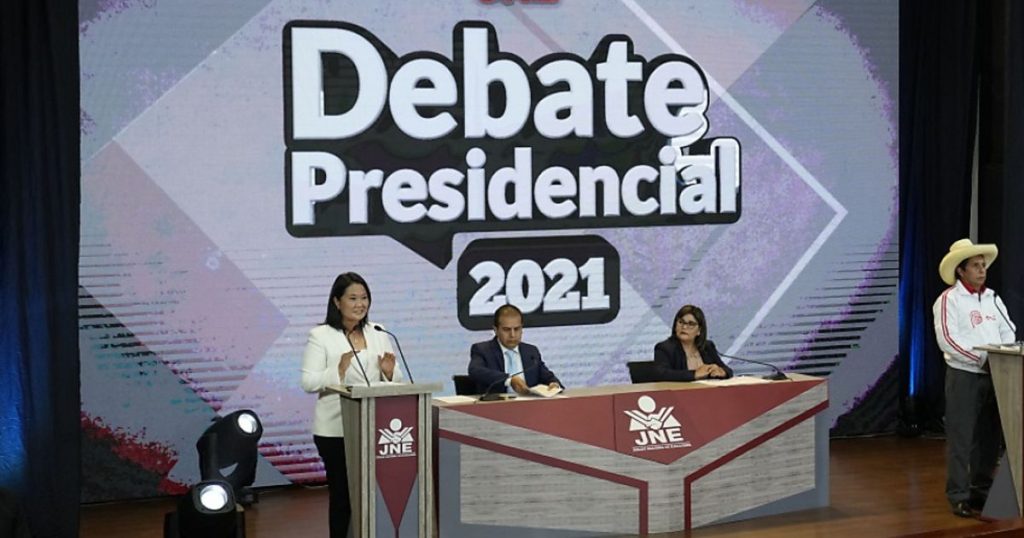According to preliminary predictions after the presidential run-off in Peru on Sunday, right-wing populist candidate Keiko Fujimori is leading directly over leftist candidate Pedro Castillo. According to the polling institute Ipsos, Fujimori received 50.3% of the vote, while Castillo received 49.7%. However, Ipsos said it is a “statistical correlation”.
The forecast was released after polls closed at 7:00 PM local time (2:00 AM CET). The first official results are expected around 6:00 AM CEST.
In recent polls, both candidates were close to each other. The 46-year-old Fujimori, daughter of former President Alberto Fujimori, is vying for the third time for the state’s highest office. In 2011 and 2016, she ended up behind her competitors in the run-off. Fujimori is suspected of corruption in the widespread case surrounding Brazilian construction company Odebrecht and has spent a total of 16 months in custody.
Unionist and teacher, 51-year-old Castillo emerged as the surprise winner of the first round of elections in April. He gained national prominence in 2017 when he led a teachers’ strike. Castillo has strong support, especially in rural areas.
Should he win the election, Castillo wants to build a socialist state, control the media more and abolish the Constitutional Court. Fujimori advocates a neo-liberal economic policy and a strict security strategy.
Her father is serving a 25-year prison sentence for serious human rights violations. During his tenure (1990-2000), the security forces were allowed to crack down on leftist forces and alleged subversive forces, and Parliament was overthrown. In addition, tens of thousands of Aboriginal women were forcibly sterilized. Should she win the election, Fujimori wants to pardon her father.
The challenges facing the new president are enormous: Peru is particularly affected by the coronavirus pandemic. It is one of the countries with the highest mortality rate in the world, and the economy collapsed at 12.9 percent. In the interior of the country, splinter groups from the guerrilla organization Sendero Luminoso (Shining Path) are still active. Two weeks ago, rebels killed 16 people in a massacre in the valleys of the Apurimac, Eni and Mantaro rivers and called for a boycott in a pamphlet. According to the Electoral Office, things remained calm on Sunday.
The past year was also marked by a bitter conflict between the government and Congress. First parliamentarians pushed President Martin Vizcarra out of office, then his successor, Manuel Merino, threw in the towel after violent protests. More recently, the South American country was led by interim President Francisco Sagaste.

“Food practitioner. Bacon guru. Infuriatingly humble zombie enthusiast. Total student.”








More Stories
Kyiv: Russian Kursk offensive halted
US Presidential Election: Former US Government Officials Warn Against Donald Trump's Election
Netherlands wants to leave asylum system